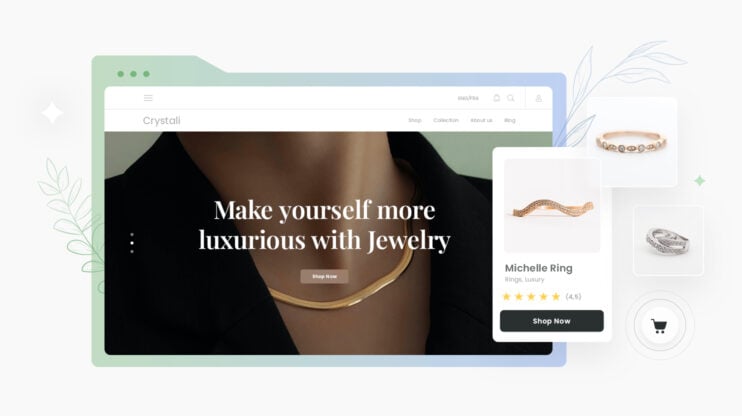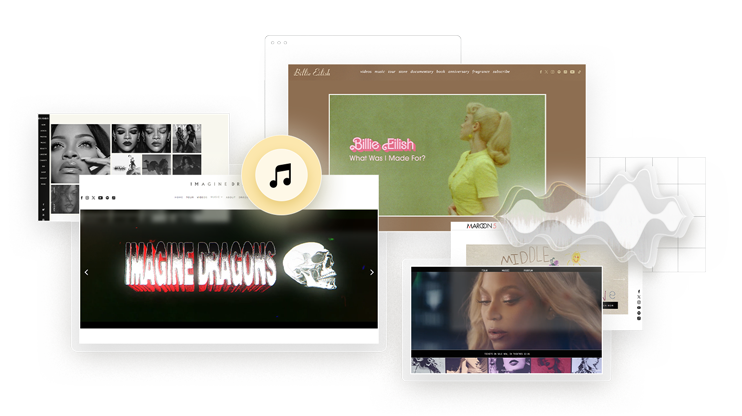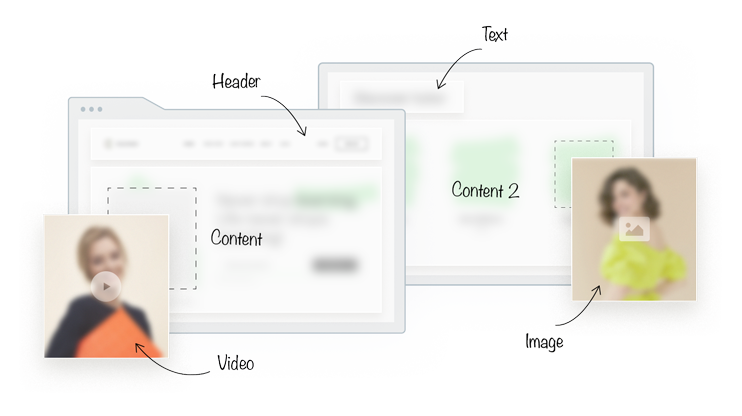The music industry today offers a diverse array of opportunities to sell music online, extending far beyond the traditional model of hit singles and albums. In this digital age, musicians and entrepreneurs can explore various avenues to make money from music online.
If you want to know how to sell music online, here are some examples:
- Sell music downloads from your website
- Offering subscription-based access to your music catalog
- Licensing your music for use in films, commercials, and other media
- Earning royalties from streaming platforms like Spotify and Apple Music
- Selling physical copies of your music, such as vinyl records or CDs
- Creating and selling merchandise like t-shirts, posters, and branded items
- Hosting virtual concerts or live-streaming events with ticketed access
- Offering music production or songwriting services to other artists
- Participating in sync licensing for video games, TV shows, and more
- Collaborating with brands for product endorsements or partnerships
Whether you’re an independent artist or an aspiring music mogul, understanding how to sell music online is the key to success in this evolving landscape of the digital industry.
Selling your own music online
Knowing how to sell music online could be a dream come true for many independent artists, bands, and aspiring musicians looking to share their talents with the world. In this section, we’ll explore how you can establish a strong online presence to promote and sell your music effectively.
Regardless of what type of musical artist you are, this information is crucial for anyone looking to navigate the digital landscape of the music industry.
In order to use the internet as a platform to launch your career, we’ll take you through the process of:
- Knowing where to sell music online
- Building a dedicated website for your music
- Leveraging social media platforms to connect with your audience
- Distributing your music through digital distribution platforms and streaming services
- Marketing and promotion to build your fanbase.
Building an online presence
To stand out from the crowd and captivate a worldwide audience online, you need a strong online presence with the potential to grow. It involves not only crafting a digital space where fans can discover your music but also learn more about you and connect with you intimately.
Create a website for selling and promoting your music
Your website is your digital storefront, headquarters, and main communications channel – all in one. It’s not only a place where to sell your music online, but also a hub where fans can connect with your brand and the story behind your art.
While you may have unique requirements, you can typically follow these step-by-step instructions on how to sell music online:
- Choose a domain name: Select a memorable and relevant domain name that reflects your artist or band name.
- Select a web hosting service: Opt for a reliable web hosting service that can handle your website’s traffic and provide security features. For example, 10Web offers an all-in-one web hosting service that’s highly scalable, has built-in security, and is built on the fast and reliable Google Cloud platform.
- Design your website: Hire a professional to design or develop your site. Alternatively, you can skip the high development costs and save time by using an AI-powered website builder like 10Web to generate unique, creative, and professional-looking sites in minutes. We provide the steps on how to do this below.
- Add music content: Include sections to showcase your music, such as a music player for previews, and pages for albums or singles. Provide clear descriptions and high-quality images to make it easy to navigate for fans.
- Implement an ecommerce system: If you intend to sell your music directly from your website, integrate an ecommerce system to manage sales securely. 10Web is capable of generating ecommerce-enabled sites, powered by WooCommerce, for an effortless experience.
- Write engaging content: Develop a compelling bio, share your journey, and engage your audience with blog posts or news updates about your music and upcoming events. If writing isn’t your forte, 10Web AI Assistant can help you craft unique and compelling copy for all your pages.
- Optimize for mobile: Ensure your website is responsive and mobile-friendly. Many fans will access your site from their smartphones or tablets.
- SEO optimization: Optimize your website for search engines (SEO) to enhance its discoverability. Use relevant keywords, meta descriptions, and alt tags for images.
- Test and launch: Before launching, thoroughly test your website for functionality, compatibility, and user-friendliness.
Now, let’s look at how easy it is to create an online platform to sell your music with 10Web. There are two options:
- Provide the 10Web AI Website Builder with a link to a website design that inspires you, and it will create a custom replica. Here are several examples to take inspiration from.
- Answer a few questions about your business and have it generate a website from scratch.
For this example, we’ll use the second approach:
1. First, got the the 10Web Ecommerce Website Builder page and click the “Generate Your Website” button.
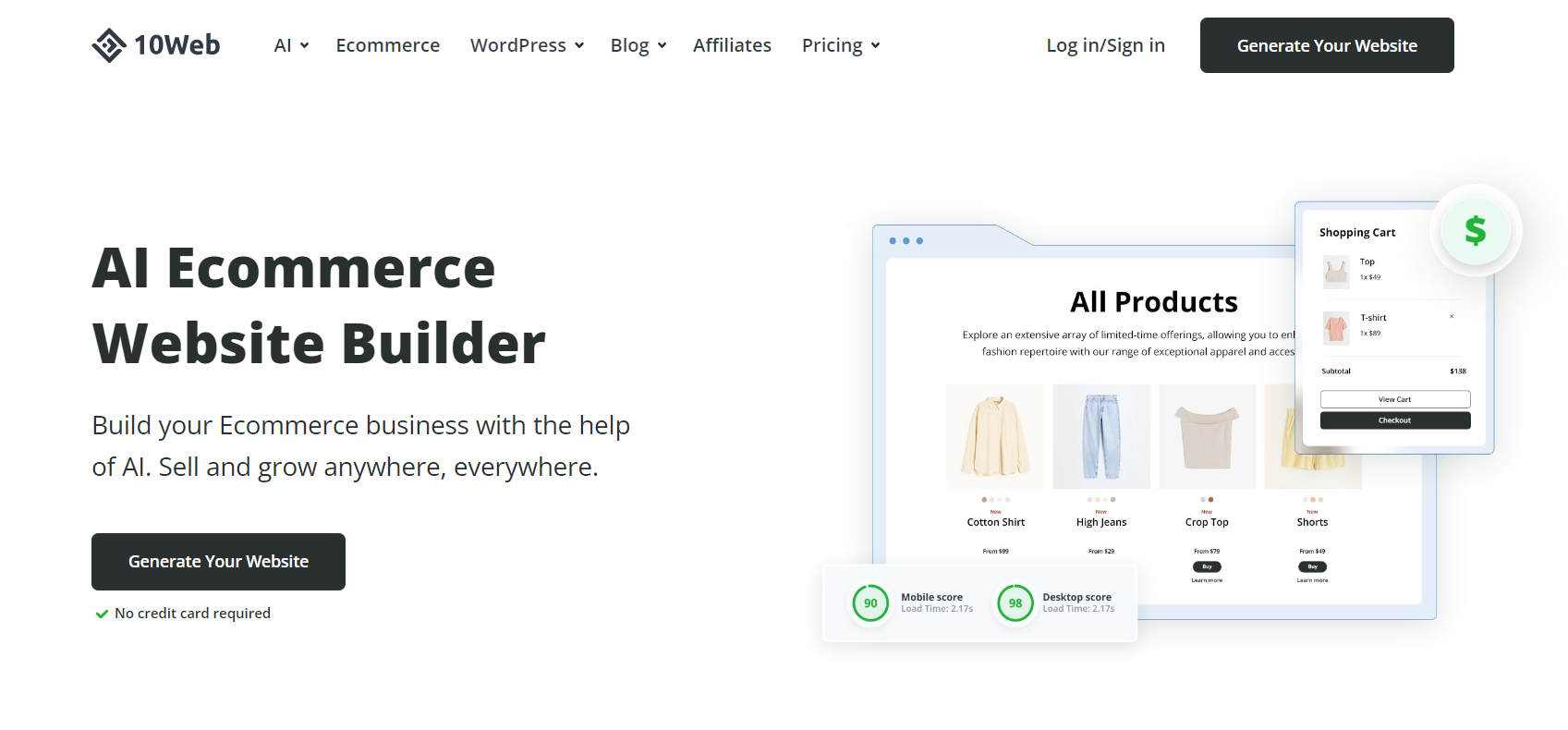
2. Indicate to 10Web that you want to create an online store:

3. Then, enter your store’s type:

4. Tell 10Web a bit about your business by providing a store name and description. The handy “Enhance with AI” tool can help you improve your description if you need to:

5. Enter the details for your first 3 products and product categories:

6. Finally, choose the tone of voice for your website, click “Finalize”, and wait for 10Web to finish generating your site:

7. From there, you can preview your site and build out the pages or fine-tune the design using its user-friendly website builder tools. You can generate new content or pages using AI within moments.

Plus, designs are responsive out-of-the-box, so you don’t have to worry about optimizing your site for mobile.
The most you need to do is ensure that you have clear categories and filters to aid visitors in discovering music easily. Also, highlight featured music and artists prominently on the homepage to captivate your audience’s attention.

Looking to sell online?
Create your custom online store in minutes with 10Web AI Ecommerce Website Builder and take your business online.
Leverage social media platforms
Social media is a potent tool to promote your music and cultivate a dedicated fan following. Engaging with your fans on social media platforms is essential for reaching a wider audience.
For example, you can utilize Instagram for visually engaging content or bite-size video clips. Facebook is fantastic for community building and promoting gigs and events. And, X (formerly, Twitter) is a great tool to provide your audience with quick updates or join in on relevant conversations.
To make the most of social media, engage with your followers, respond to comments, and maintain a consistent posting schedule.
For instance, Billie Eilish has successfully used Instagram and X (Twitter) to connect with her fans, sharing snippets of her life and music.

Distributing your music
If you want to know where to sell your music online, you need to understand music distribution. Distributing your music is the next vital step after building your online presence. It ensures that your tracks reach a global audience, making your music accessible to listeners around the world.
To achieve this, you need to tap into digital distribution platforms and streaming services. This section will delve into the details of how to get your music from your recording studio to the ears of your fans worldwide.
Use digital distribution platforms
Digital distribution platforms act as intermediaries between you, the artist, and major streaming platforms and digital stores.
Platforms like TuneCore, DistroKid, and CD Baby allow you to upload and distribute your music across major streaming platforms and digital stores like Spotify, Apple Music, and Amazon Music.

They handle the logistics, ensuring your music is available to a vast audience, without trapping you in the technical details of how to sell music online.
Artists like Chance the Rapper and Stormzy have leveraged these platforms to gain recognition and access a broad listenership.
If you’re looking to integrate music distribution with your WordPress website, you have a few options as well. There are various plugins, like Music Store, and WooCommerce extensions to provide and sell your music on your website.
Upload to streaming services
Streaming services have transformed the music industry, and artists should embrace this powerful avenue when learning how to sell music online. Streaming platforms like Spotify and Apple Music offer a chance to earn royalties and gain exposure, with almost no extra effort.

These platforms make it relatively easy to upload your music, create captivating artist profiles, and engage with your audience, even without a distributor. WordPress also has integrations to embed Spotify music and playlists on your website.
May new artists, including Khalid, Lil Nas X, Billie Eilish, and Post Malone, drastically grew their audiences thanks to the open, sharing aspect of these platforms.
Marketing and promotion
Marketing and promotion are the driving forces behind the success of your music career and how to sell music online. There are millions of talented people worldwide trying to make a living and become famous through a musical career.
Learning how to cut through the noise and increase exposure to continue to grow your listeners is key to making it today.
Promote through social media
There are nearly 5 billion social media users worldwide. For most of us, social media is the first place we go for news and updates on current affairs and public figures. Knowing how to effectively promote through social media is key to success online.
Here’s how to do it:
- Content variety: Diversify your content by sharing teasers, music videos, live performances, behind-the-scenes glimpses, and personal moments.
- Consistent posting: Establish a regular posting schedule to maintain a presence in your followers’ feeds.
- Storytelling: Share your musical journey and personal stories to connect with your audience on a deeper level.
- Engage with fans: Respond to comments and messages promptly to build a sense of community and loyalty.
- User-generated content: Encourage your fans to create content related to your music. Running contests or challenges can get your fans involved in promoting your music.
- Collaborations: Collaborate with other artists or influencers on social media.
- Paid advertising: Use targeted advertising campaigns with specific demographics and interests to ensure your ads reach the right people.
- Analytics and insights: Monitor the performance of your posts and campaigns using platform-specific analytics tools and adjust your strategy.
- Hashtags: Use relevant and trending hashtags to increase the discoverability of your posts.
- Live streaming: Go live on platforms like Instagram and Facebook to interact with your audience in real-time.
Collect initial fanbase and send newsletters
Collect email addresses from website visitors and social media followers. With this info, you can send regular newsletters, updates, and exclusive content to your dedicated fans.
This direct communication channel fosters a deeper connection, similar to how Adele has maintained a strong bond with her fans by occasionally sending heartfelt newsletters.

Here are some tips on how to get your email list going:
- Email collection: Collect email addresses through your website and social media to build your fanbase. You can incentivize signups through giveaways (memorabilia, tickets, VIP experiences, etc.) or other special offers.
- Newsletter consistency: Send regular newsletters with updates, new releases, and engaging content.
- Personalization: Personalize your newsletters to make fans feel valued.
- Avoid spam: Ensure your emails comply with anti-spam regulations and provide an easy unsubscribe option.
- Engage and reward: Run contests or giveaways to keep fans engaged, reward loyal subscribers, and incentivize actually checking for new emails.
Selling (reselling) other’s music on your website
Now, we get to the question of how to sell music online, if it’s not YOUR music.
If you’re not an artist yourself, but a music connoisseur, reselling other artists’ music on your website has become a promising business model as well. In this model, you curate a unique collection of tracks from other artists, that you can use in various ways to potentially generate revenue.
Here are some examples of businesses that operate using this model:
- Online music stores: Businesses like Amazon Music, iTunes, and Beatport sell music directly to consumers, often featuring a wide catalog of artists and genres.
- Independent music labels: Independent record labels such as Sub Pop Records and Warp Records often sell and distribute music through their websites, helping emerging artists reach broader audiences.
- Music marketplaces: Platforms like Bandcamp allow independent artists and labels to sell their music directly to fans through their websites, acting as a marketplace for music.
Below, we’ll delve into all the essential must-know information about launching this kind of venture. From licensing and copyright rules to curating a profitable music selection to marketing and promotion to actually building an online music store — we’ve got you covered.
Licensing and copyright
Understanding licensing is crucial because it defines how you can use another artist’s work, ensuring you have the right to sell it on your website. Failing to do so can result in copyright infringement lawsuits, fines, and damage to your reputation as a music seller.
Complying with licensing and copyright restrictions also ensures that artists receive their fair share, helps you foster positive relationships, and maintains the health of the music industry as a whole.
Understanding licensing agreements
The proper and lawful use of others’ music starts with understanding the different licensing options. Different licensing options or rights give you permission to use artists’ creations in different ways, while also placing restrictions within which you need to operate.
Complying with these agreements will protect both you and the artist from misunderstandings or abuse, not to mention legal trouble.
Here are some licensing options you should be aware of:
- Mechanical rights: These rights cover the reproduction and distribution of copyrighted music. You need a mechanical license to sell recorded music in physical or digital form.
- Performance rights: This pertains to the public performance of music, such as playing it in a commercial setting. You may need permission or licenses from PROs (Performing Rights Organizations) like ASCAP, SESAC, and BMI.

- Synchronization rights: If you intend to use music in multimedia projects like films, TV shows, or advertisements, you’ll need synchronization rights from the copyright holders.
- Master rights: When dealing with existing recordings, you may need master use rights to use those specific recordings in your resale business.
Ensuring proper rights and permissions
To resell music legally, ensure you have the proper rights and permissions from the copyright holders. This includes obtaining licenses from record labels or artists directly. For independent artists, you might negotiate directly with them.
Here are some steps you can use to ensure proper use of rights and permissions:
- Identify the copyright holders: Determine the copyright holders of the music you wish to sell, and contact them directly to discuss your options. This might be the artist, the record label, or the music publisher.
- Licensing agreements: Work with the copyright holders to establish clear terms, including the scope of use, duration, and compensation arrangements. Seek legal advice if necessary.
- Perform due diligence: Verify the ownership and rights associated with the music. Rights may change hands, so ensure that the copyright holders still have the authority to grant you the necessary permissions.
- Use licensing services: Consider using licensing services or organizations like Harry Fox Agency (HFA) for mechanical licensing and Performing Rights Organizations (PROs) like ASCAP or BMI for performance rights. They can simplify the licensing process and ensure proper compensation.
- Stay informed: Stay updated on copyright laws and regulations, as they can change over time. Consult with legal experts to ensure you remain compliant with the latest developments.
5 steps to building an online store for selling music
Below is a quick guide that outlines 5 steps to building a website for how to sell music on your own website.
It’s not only important that you know how to sell music online, but also how to do so while investing as little upfront time, money, and effort as possible. That’s why we recommend using AI tools that not only help you operate more efficiently but also improve the final product outcomes.
1. Designing your online music store
A creative and professional design is vital to attract customers and build your brand. It must help you to sell music online effectively and provide visitors with a seamless experience. Look at other music selling websites to find inspiration, but make sure that the final design and content are tailored to your brand.
If you don’t have the time or skills to design a website yourself, or the budget to hire professionals, there are other options. An AI-powered ecommerce website builder, like 10Web’s, can help you create a unique and effective design in minutes.
You can see the full steps on how to create an online music store with 10Web above.

Looking to sell online?
Create your custom online store in minutes with 10Web AI Ecommerce Website Builder and take your business online.
2. Building the ecommerce functionality
Think about all the possibilities for generating revenue through your online store. On top of selling individual singles or albums, you can use a subscription model with different levels of access. Also, consider if you want to sell physical (collector’s records, e.g.) or purely digital music.
You can even create a parallel store selling merchandise featuring artists or their music, like t-shirts, caps, mugs, keychains, etc.
Create a user-friendly shopping cart and checkout process to encourage conversions. And, enable customer reviews and ratings to foster user engagement and trust in your platform.
10Web’s AI Ecommerce Website Builder is powered by WooCommerce, meaning it can support virtually any type of online store, product catalog, and revenue model. There are also a wide range of convenient and safe payment methods to choose from, including debit/credit card, PayPal, etc.
As an added bonus, 10Web features a user-friendly ecommerce dashboard, which makes managing your store, products, promotions, and orders much easier.
3. Adding music catalog and descriptions
The music catalog is the heart of your online music store, and understanding how to sell music online starts with this essential step. Organize it efficiently with categories for genres, artists, and albums.
Craft compelling, informative descriptions for each music item, with artist biographies and album details. Ensure high-quality images and audio previews for each product, providing customers with a comprehensive understanding of their potential purchases.
Leveraging 10Web’s AI tools to enhance your website content can help you maintain a consistent and professional catalog.
4. Implementing user accounts and customer support
Allowing your customers to create accounts is an effective way to ensure repeat customers and foster loyalty. This enhances their experience by saving preferences and streamlining future transactions. This allows you to implement one-click checkout, for example, which is shown to boost conversions by almost 30%.
Plus, it will make it easier to provide customer support, which is essential to maintaining trust and a solid user experience.
5. Testing and launching your store
Although many skip this, it’s a vital part of how to sell music online. Prior to the official launch, extensive testing is essential to ensure functionality, usability, and security. Check for broken links and guarantee a seamless checkout process to sell music on your website.
Employ 10Web’s AI tools to run diagnostics and optimize your website’s performance, for example, by using the PageSpeed Booster or built-in security. Once you are confident that your store works as expected, proceed to the official launch and start marketing and promoting your business (more on this below).
Curating music selection
Curating your music selection is a pivotal strategic step in creating an online store to sell music online. It’s not just about offering any music; it’s about tailoring your offerings to the preferences of your target audience, an essential aspect of how to sell music online successfully.
It significantly enhances the user experience, making it more likely for visitors to find tracks that they love and sell music downloads from your website, ultimately leading to increased sales and fostering a loyal base of returning customers.
Secondly, curating your selection is instrumental in building a distinct and trustworthy brand image, which, in the realm of music-selling websites, is essential for earning the trust and credibility of your audience.
Not curating your music selection adequately can result in a cluttered and confusing store, detracting potential buyers and leading to missed sales opportunities, potentially hindering your journey on how to sell music online successfully.
Identifying target genres and audiences
Identifying the target genres and audiences is a crucial aspect of how to sell music online. This step helps you refine your offerings, making it easier to run successful music-selling websites.
Although you have your own taste and vision, you may have to make some compromises when selling your music successfully. Audience tastes might not align with your own, and frequently change over time:
- Market research: Begin by conducting market research to understand which music genres are in demand and who your potential customers are. Tools like Google Trends or audience analytics platforms can assist in this process.
- Customer surveys: If you already have a customer base, consider running surveys to gain insights into their musical preferences. This can be easily accomplished through tools like SurveyMonkey or Google Forms.
- Competitor analysis: Study the music offerings of competitors or similar platforms. This can provide valuable insights into popular genres and audiences in your niche, and open your eyes to lesser well-known artists.
- Segmentation: Categorize your music selection into genres and sub-genres, ensuring your store appeals to a wide range of tastes. For instance, a platform like Spotify effectively curates music based on user preferences and genre categorization.
Sourcing music from independent artists and labels
Sourcing music from independent artists and labels is the next step in curating your music selection. However, it might be one of the most unclear aspects for newcomers wanting to know how to sell music online.
Here’s how to go about it:
- Contact local musicians: Reach out to local independent musicians who may be interested in featuring their music on your platform. Attend local gigs and music events to connect with artists, producers, and other industry figures.
- Utilize music distribution platforms: Services like DistroKid or CD Baby can help you discover independent artists looking to promote their music. Collaborating with these platforms can simplify the sourcing process.
- Independent label partnerships: Partner with independent record labels that specialize in genres aligning with your target audience. Many labels are open to showcasing their artists on various platforms.
- User-generated content: Allow users to submit their music, creating an opportunity for emerging artists to promote their work on your platform. Platforms like SoundCloud, for example, have successfully implemented this strategy.
While this may seem daunting, it’s a very important process that will help you create the best place to sell music online. Working with local people or engaging them in real life will also help you cut through the immense noise and competition of trying to strike up deals online.
Marketing and promotion
Marketing and promotion is a make-or-break factor when it comes to selling music online. It’s how you drive traffic, attract customers, and boost sales.
Let’s cover some key steps and tools to help you market and promote your music effectively:
Setting up the right prices
The best way to sell music online is to determine prices that are attractive to your audience and undercut your competition.
Here is how you can go about it:
- Pricing strategy: Research your competitors and the market to determine competitive pricing. Tools like Price2Spy can help you track competitors’ pricing and adjust your own accordingly.
- Discounts and promotions: Use plugins like WooCommerce Discount Rules to create special offers, bundle deals, or seasonal discounts to entice customers.
- Subscription models: Consider offering subscription-based access to your music catalog. Plugins like MemberPress or Restrict Content Pro can help you set up subscription plans.
Creating a compelling catalog and user experience
The next step for selling music online is to make it as easy as possible for your website visitors to find:
- SEO optimization: Ensure your music catalog is search engine optimized. Use the Yoast SEO plugin to improve your website’s visibility on search engines. Also, make sure your URLs are both search engine and user-friendly.
- User reviews: Word-of-mouth can be the most effective marketing, so encourage users to leave reviews and ratings for the music they purchase. The WP Customer Reviews plugin can help you implement this feature.
- Ease of navigation: Make sure your catalog is easy to navigate. Use tools like WP Mega Menu for a user-friendly menu structure.
Promoting featured music and artists
Promoting featured music and artists can be a strategic advantage to retain customers and sell your music online. By showcasing the best and most appealing content, you can capture your audience’s attention and drive sales.
Here’s how to do it:
- Featured content: Highlight featured music and artists on your homepage. Identify the top-performing artists, and keep an eye on the news to promote bands with current or trending hits.
- Email marketing: Build an email list and send newsletters to your subscribers to take advantage of these trends. Tools like Mailchimp or Brevo are examples that also integrate seamlessly with WordPress.
- Social media integration: Share featured music and artists on your social media platforms. Use plugins like Social Warfare to encourage social sharing and boost visibility.
- Content marketing: Write blog posts about featured artists or music genres. Plugins like Yoast SEO can assist in optimizing your content for search engines. 10Wes AI Assistant can also help you craft SEO and reader-friendly content.
Conclusion
In an ever-evolving online music industry, knowing how to sell music online as effectively as possible is paramount for success. This guide equips you with the knowledge to navigate this dynamic landscape and leverage various avenues for selling music online.
As you venture into this realm, 10Web’s advanced AI tools offer a way to streamline website creation and maintenance, while also ensuring you have a visually engaging, responsive, and efficient online music store. With 10Web AI Ecommerce Website Builder, you can quickly launch your online business with a unique and professional digital storefront, while also having the flexibility to succeed in the constantly changing business of selling your music online.

Looking to sell online?
Create your custom online store in minutes with 10Web AI Ecommerce Website Builder and take your business online.
Wait!
Your online store
is a click away
Your online store is a click away
-
Create an ecommerce website in 1 minute with AI
-
Set up and manage payments, products & more
-
Grow your business with all in one platform

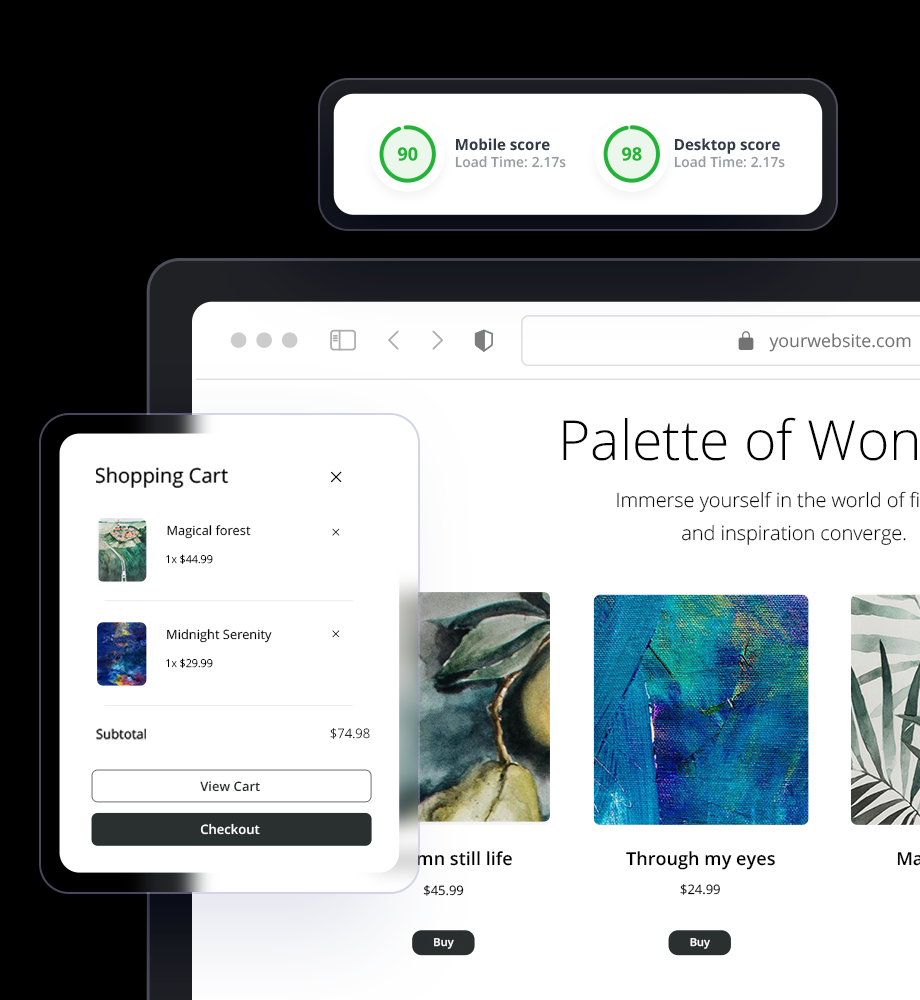




 Create an ecommerce website in 1 minute with AI
Create an ecommerce website in 1 minute with AI 




